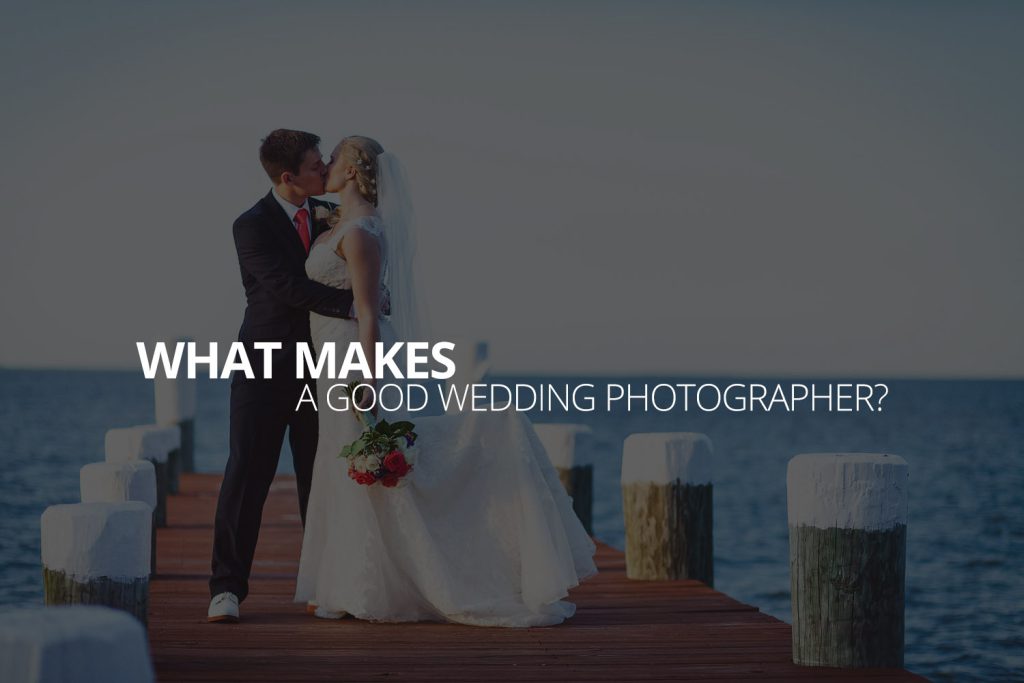Rounding out our mini blog-series on what makes a photographer good at their speciality, today, we’re going to talk about the wedding photographer. We started with What makes a good family photographer, and then What makes a good headshot photographer, so if you haven’t checked those out, and a need to work with one of those people is somewhere on the horizon, go give them a read and let us know your thoughts.
The wedding photographer, unlike the subjects of our past two articles, is a different beast. As in those other articles, it’s assumed that the photographer produces images you like. This article tries to identify whether the photographer who makes images you like is a good photographer. It’s actually a pretty complicated question, but it’s not especially technical. A wedding photographer who tries to tackle a wedding needs to have the technical chops to do so. That’s the baseline requirement. A wedding is not the place to learn on the job—at least not technical learning.
The reason the qualities of a ‘good’ wedding photographer are not technical is because weddings are unique, emotionally charged events, with lots of moving parts and little room for significant errors. So, the skills that make a photographer ‘good’ at it are mostly ‘soft’ in nature. They’re questions of how the photographer conducts themselves within that framework.
So, lets dig in and look at some of the qualities that make a wedding photographer ‘good’. Again—just a reminder, all of these points first assume that you like the images the photographer has taken.
They are well organized
A family or headshot photographer may be forgiven for mistakenly arriving at the wrong address. Mixups happen. You could excuse the error if they forgot to take a certain photo, or if their harebrained photo idea doesn’t quite pan out. And, rescheduling once or twice—while inconvenient and sometimes unprofessional—wouldn’t be the end of the world.
However, wedding photographers, as I’ll expand on later, don’t get this luxury. They need to arrive at the right time, at the right place, and do the thing there that they intended to do. The other obligations in their life—save for a select few unforeseeable and extreme examples—don’t matter. A good wedding photographer must be organized enough to shape their life, schedule and priorities around fulfilling their duties on your wedding day. A wedding photographer has no room to arrive at the wrong address, and poor note taking will not serve as an excuse. They need to know the photos that are most important to you, and make sure to get them. ‘Forgetting’ will not be a sufficient reason.
A disorganized wedding photographer may sometimes create some photos you like, but they are probably not a ‘good’ wedding photographer.
They can be kind while being firm
Even if they make some nice photos, a ‘good’ wedding photographer doesn’t bark orders at people. They don’t raise their voice in frustration or anger. They don’t throw tantrums with your friends and family. They are keenly aware of how important it is to stay calm, patient and kind, but are not afraid to be firm in the pursuit of creating the images that are most important to you.
Where a family photographer is free (and wise) to be kind and strictly non-confrontational for as long as necessary to create the images you’re hoping for, a good wedding photographer has to strike the uneasy balance between being firm and decisive, and being patient and kind. It’s a soft skill and one that photographers tend to either develop early, or lack entirely.
They help set your expectations
Weddings are not a casual affair—even casual weddings. Anyone who pays good money to have a photographer cover their wedding does so because the images are important to them and they don’t expect to be getting married ever again. So, good wedding photographers cannot approach a wedding day (of any kind or formality) with ‘whatever happens, happens’ kind of mentality. Even if the bride(s) and/or groom(s) have a laid back attitude, the photographer must have a more serious tone. We always have expectations, whether we realize it or not, and especially when we’re spending good money.
If I hired someone to clean my car—something I have a very laid back attitude about—and the car washer thoroughly missed my expectations (whether I realized I had them or not), my attitude toward them and their service would change. Weddings are not car cleanings though.
People who have a laid back attitude toward their wedding still have expectations. Maybe they don’t realize it yet, but they’re there. A ‘good’ wedding photographer won’t just hope that your expectations happen to line up with their actions. They take proactive steps to understand and help set your expectations so that you get more of the images you want, and a realistic method for getting them can be identified.
They are diversely equipped & change ‘gears’ quickly
This is about as technical as this list gets—good wedding photographers have all the gear they need, and that is quite a lot. That means flash units, in case it’s dark. More flash units, in case on of them craps out. Very long lenses, in case they can’t get close enough. Very wide lenses, in case there’s not enough space. Extra camera bodies, in case one of them dies. Rain sleeves, in case it’s wet. Tripods, in case it’s really dark. Macro lenses, in case the details are tiny. Lens hoods, in case the sun is too high. Flash triggers in case there’s nothing to bounce light off of. And tons, and tons and tons of memory cards, camera batteries and lens cloths. That list could go on. Our wedding day equipment check list has around 100 items on it. Sheesh.
Having the gear, however, is just barely half the battle. A good wedding photographer needs to know when to use the gear, how to use the gear, and they need to confidently transition from one set of gear to another, very quickly—often in less then 5 minutes.
They are dually focused on their images and your experience
In some photographic specialities, the quality of your experience might not matter so much, as long as the images turn out how you hope. Of course, any photographer trying to earn their client’s trust, respect, and money would be wise to offer a good experience as well as good images. But, wedding photography is not one of those specialties. The experience you have working with your photographer on your wedding day can, and probably will, affect how you feel about the images themselves in the coming months and years and decades.
Although there is probably nothing that will make you feel especially good about getting ‘bad’ photos, no matter how good an experience you had, it’s not at all unheard of to have trouble enjoying ‘good’ photos when the experience was really bad. So, in some respects, a ‘good’ wedding photographer’s job is to create good photos in the context of a good photography experience. They have very little room to sacrifice one for the other, and they are aware of this dichotomy.
Their risk taking is calculated, and they know when to give up
Photographers don’t get too many really great photos, in any context, without a degree of daring. Without taking some risks. A landscape photographer, for example, can risk an entire afternoon for one good shot. And if it turns out, it may stand to be a real marvel. A family photographer can risk a whole shoot trying and trying and trying for one particular photo of the family, knowing that if it doesn’t work out, they’ll just have to start over and do it again.
A good wedding photographer, on the other hand cannot be so lackadaisical with their risk taking. A wedding photographer who takes careless risks, however well intentioned they may be, puts their whole project, and images that are deeply important to you, at risk.
A wedding photographer, like all ‘good’ artists, will take risks. But a ‘good’ wedding photographer takes those risks while weighing the potential consequences more carefully. If they take this photo, what other photo(s) might not make the cut? If this idea doesn’t pan out, what other elements of the wedding day photography will be put in jeopardy, and how will they respond to it? A good wedding photographer is cognizant of, and analytical toward, these questions in real time.
They respect the emotional gravitas of the day
Lets be honest, there are a lot of photographers shooting things without assigning them any real ‘gravity’. It’s “just a senior portrait” or it’s “just a product photo” or it’s “just a headshot”. That might be fine sometimes, but in some degree, a photographers work almost always reflects their understanding of the gravitas in the session. And this is on hyper-display in wedding photography.
Even if a photographer doesn’t feel the weight of a wedding day themselves, a good wedding photographer respects the weight of the day as you experience it. How well they do this, in a lot of ways, informs and underscores the rest of the points I’ve mentioned thus far. A wedding photographer who thinks your wedding is stupid and that you’re taking it too seriously isn’t likely to fulfill the other points laid out here. So, find a photographer whose images you like, and who respects the gravitas of your wedding day, and you’ll probably have found a ‘good’ wedding photographer.
In Conclusion
Wedding photography is a diverse and complicated endeavor. The hard part for the photographer begins after they’ve figured out how to create a good image in a diverse set of circumstances. Besides the quality of their images, what makes a wedding photographer ‘good’ is mostly in their soft skills. How they relate to themselves and others, and how they manage a complex task in real-time. These are the things to look for when you’re doing you’re hiring.
If you’re still looking for a wedding photographer, we’d love to hear from you. Check out the Wedding Photography page here on our website to learn more about our services, including pricing and package information. Or, feel free to send us an email directly. We’d love to start a conversation with you!

